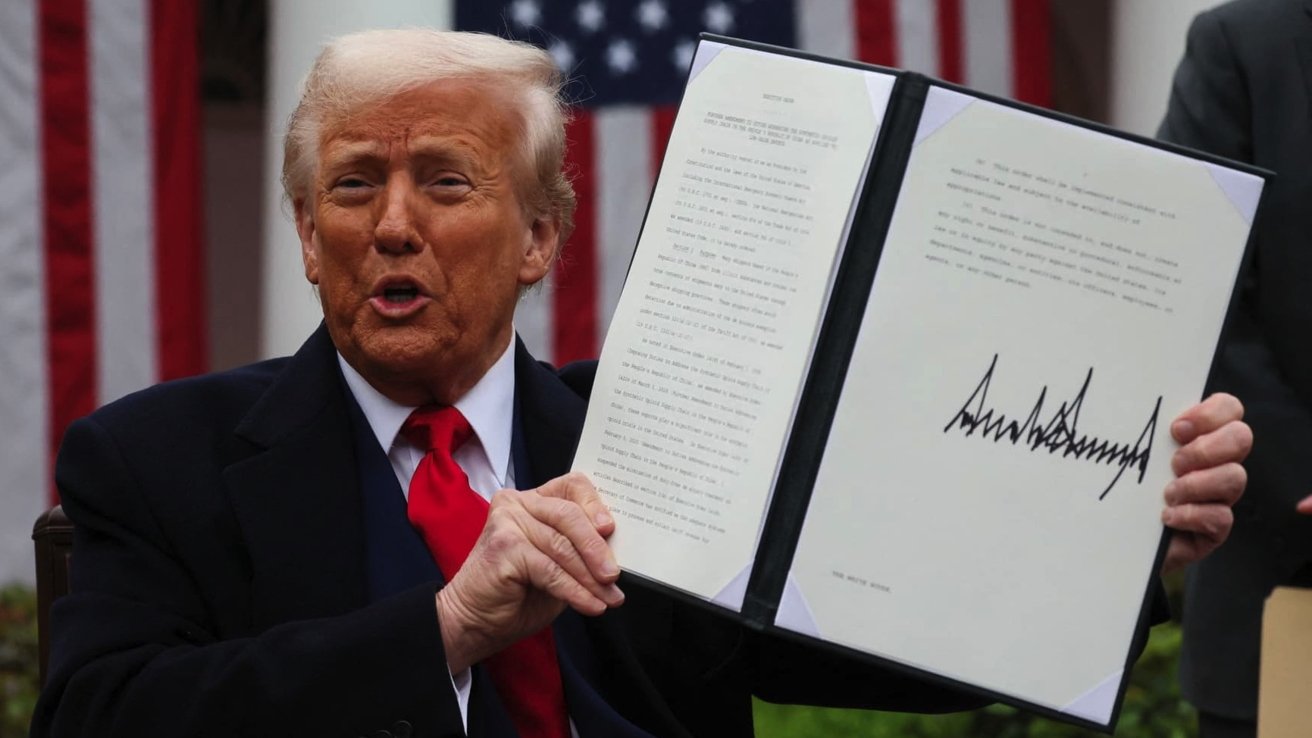The White House and China have issued a joint statement, announcing a 90-day reduction in tariffs in a cool-down period to kick off negotiations for a new trade deal.
Of all the US firms and consumers affected by Trump’s “reciprocal” tariffs, ones importing goods from China have been hit the most. While Apple got a wide-ranging tariff exemption, other tariffs were unquestionably going to be applied at some point. Even with the exemptions, Apple had to perform logistical gymnastics to get the costs of tariffs down to $900 million in the next quarter.
Now according to Bloomberg, the two countries have announced a 90-day pause in their tariffs. The pause does not entirely remove the recent tariffs, and it does not affect those tariffs introduced by Trump during his first administration — including a 20% one on smartphones.
Instead, the US will reduce its 145% tariff on most Chinese imports to 30%, starting on May 14, 2025. The 125% Chinese tariffs on US goods will be dropped to 10%, presumably at the same time.
“We are in agreement that neither side wants to decouple,” said treasury secretary Scott Bessent. “[We] had a very robust and productive discussion on steps forward on fentanyl [which may lead to] purchasing agreements” by China.
What happens next
The White House announcement late on Sunday, May 11, said that further details would follow, with a briefing on Monday, May 12. The announcement followed two days of negotiations in Geneva, which Trump did not attend.
“Just remember why we’re here in the first place,” said US trade representative Jamieson Greer in the announcement. “[The] United States has a massive $1.2 trillion trade deficit, so the President declared a national emergency and imposed tariffs, and we’re confident that the deal we struck with our Chinese partners will help us to work toward resolving that national emergency.”
Trump previously announced a 90-day pause in tariffs for every country except China, although that really meant a reduction, instead of a pause. Plus, the reduction was to a level that in every case was still more than US firms were previously paying when importing from those countries.
Then Trump did also threaten to halve that particular pause. One reason for stocks such as Apple’s continuing to be volatile is the uncertainty over how changeable the situation is.
At close on Friday, Apple’s stock was at $198.53. It has since risen overnight following the announcement to $212.00. Immediately prior to Trump’s first announcements of the “reciprocal” tariffs, the shares were at $223.89.





